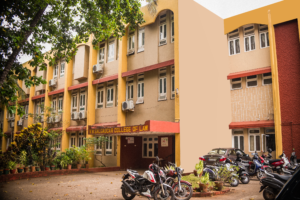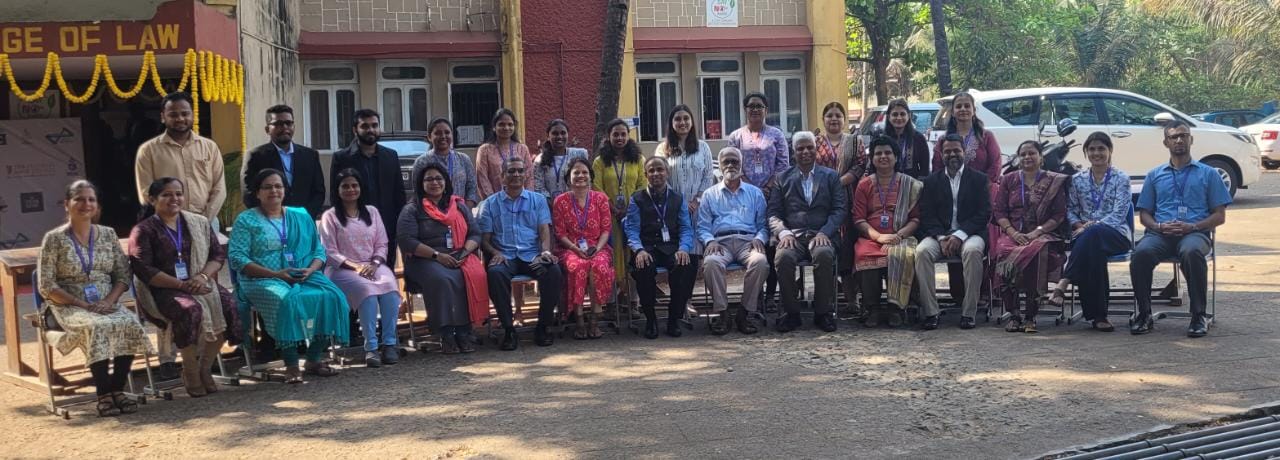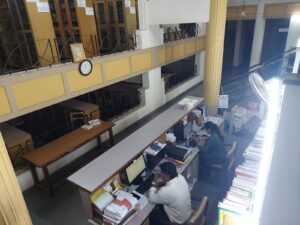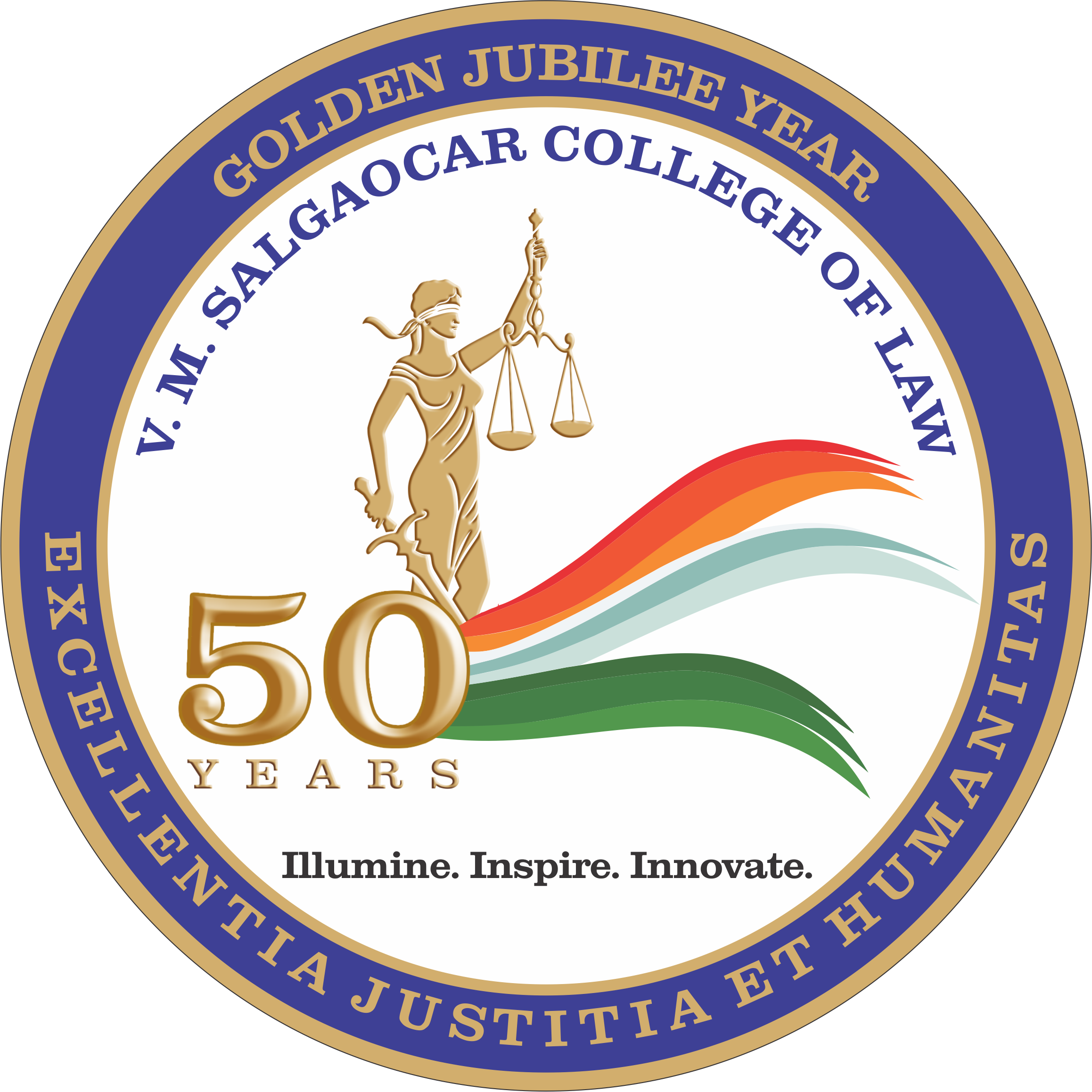Legal Thought and Practice in Pre-liberation and Post0liberation Goa (1950-1970)
EditorialLegal Thought and Practice in Pre-liberation and Post0liberation Goa (1950-1970)
Adv. Prema Matkar•
![]()
Lawyers in the State of Goa, particularly those who practised in pre and post-liberation Goa have a unique experience in the world. This is because they worked under two different legal systems namely ‘Civil Law System’ and ‘Common Law System’. This paper is written in light of this aspect. It sets out legal thought and practice in pre and post-liberation of Goa with thoughts shared by two prominent advocates: Senior Advocate M.S. Usgaocar and Notary Advocate F.J. Colaço, who have successfully overcome the hurdles of legal thought and practice during both the periods.
As stated above, during Portuguese regime Goa1 was governed by ‘Civil Law System’, “…which consists of a large number of National/Local Laws each of which has its core on a Civil Code based largely on Roman law.”2 As stated by Peter De Cruz, under this system, a “…Code is an authoritative, comprehensive and systematic collection of general clauses and legal principles, divided into Books or Parts dealing in a logical fashion with the law relating thereto.”3
The position of a Code under Civil Law is such that when promulgated, it abrogates all existing rules and it provides a new start in the development of the law.4 Similarly, it is “…regarded as the primary source of law, to which all other sources are subordinate, and often the only source of law on a particular matter.”5 Unlike in ‘Common Law System’ where Codes
“…are generally enacted to consolidate the law [found in the decisions of the courts6] on a particular area or to clarify an area of law which has become unsettled, obscure or confused. It is exceedingly rare for a Common Law Code to attempt to enact new rules or new concepts….”7
Under this system, “[t]he law is the law as interpreted by the last judge of the highest court [in a similar case is implied] till repealed by the new law [i.e. law or case law of a similar strength].”8
On 19th December 1961, when Goa was liberated from the Portuguese regime, ‘Civil Law System’ which was fully ingrained in the Goan culture,9 was repealed and ‘Common Law System’ prevailing in the rest of India was extended to Goa .10 This had a great impact on lawyers and judges who were educated and trained under Portuguese legal system. It was not just the legal system that had changed, but also its language had transformed from Portuguese to English. In addition, since the primary source of law before ‘Common Law System’ was case law rather than statutory law,11 the law, method and procedure followed under the two systems was also different.
For instance, as Civil Law “…operates on the basis of principles and thinks in [terms of] concepts…”12 the lawyers under Portuguese regime had to first read the law, understand it and then apply to the case in hand.13 But in post-liberation Goa lawyers and judges had to follow the rule of precedent. Apart from this, there were other hurdles which the practitioners had to overcome to do justice to their profession.14 The main hurdle was of language.15 Being educated and trained in the Portuguese language, to switch to English was difficult, but not impossible. This reflects on the well-established legal practice of two great personalities: Senior Advocate M.S. Usgaocar and Notary Advocate F.J. Colaco, who acknowledged the difficulty, but also admitted that they survived the change in the legal system in Goa.
Senior Advocate M.S. Usgaocar said: “Despite all odds, we survived. We might have bent a little but not broken against new waves.”16 His ability and adaptability to new system is praised by Justice J.S. Verma who said “[i]n Mr Usgaocar, I found a person who was able to synthesise the two systems better than anyone else that I know here…”17 He further remarked that he is amazed how Mr Usgaocar has been able to adapt himself so well to the other system from that kind of background i.e. ‘Civil Law System’.18 However, at the same time, he said
“…basically the thought process of everyone involved in the justice delivery system is … same, may be at times you are thinking of different rules but then the goal, the aim to be achieved, being the same in effect ultimate result is not much different.”19
Senior Advocate M.S. Usgaocar on the other hand, who expressed his view on the said aspect said,
“The thought process as well as practice in pre-liberation and post-liberation of Goa was different. Legal thought in pre-liberation was in the form of abstract rules and the practice was purely based on interpretation and understanding of those rules (or principles). But in post-liberation, the case law took prominence. As a result, the lawyers and the judges had to follow precedents theory. Hence, statutes or principles in general, took a subordinate position in post-liberation, unless upheld or delivered through decisions of the courts. This is because, Common Law in brief, denotes rules derived from decisions of the superior courts in contrast to those derived from the statutes.”20
Along with the thought process, the structure of the Court, the procedure, the value of decisions of the courts and the role of the lawyers and judges also changed. For instance, the structure of the court in pre-liberation although was not different to that of post-liberation, the latter period comprised of two additional courts: District and Session Courts. Likewise, in pre-liberation, the Supreme Court was the Supreme Court of Justice of Lisboa, whereas in post-liberation we had the same court as today i.e. Supreme Court of India. However, the procedure adopted during these two periods was different. For instance, the legal system in pre-liberation was more efficient and time saving.21 For example, in those days, no oral arguments were heard in the courts. The concerned parties had to submit arguments in writing. The parties were given opportunity to file rejoinders too.22 In case of appeal, it was sufficient that an aggrieved party submits an application expressing a desire to prefer an appeal or revision. This had to be done within eight days from the date of the order/judgement in the case.23 Thereafter, appeal memo was filed in the same court to which the respondent would file reply. Subsequently, the arguments to be presented before the appellate court were filed in the trial court to which the respondent would file a reply. Only then the whole file was sent to the High Court where the appeal was decided based on written arguments. Same procedure was followed in the matters where appeal would lie to the Supreme Court. The only exception of hearing oral arguments was in the criminal cases where parties were allowed to argue orally. In addition, the role of judges was strict as far as disposing of matter was concerned. They were given 15 days to dispose matters and they could extend it only by due procedure of law in exceptional circumstances.24 Lawyers on the other hand, could not influence the judges because arguments filed were in writing. In addition, during the pre-liberation period, the lawyers only had to produce facts before the judge, though in practice the lawyers used to quote and submit case law or doctrine in support of the respective cases. It was the judge’s duty to apply the law. In post liberation period, no limitation was imposed on time for disposing cases. At the same time, there remained the possibility of lawyers influencing judges through oral arguments and the lawyers in post-liberation had to provide law point to judges along with facts.
In post-liberation period, the efficiency to dispose matters, declined. The procedure and method adopted during this period resulted in heavy workload on judges and as a result the pronouncement of decisions slowed down. At the same time, the judges had no set time limit to dispose matters.25
As stated earlier, judicial decisions during pre-liberation period were neither regarded as originating legal rules nor were they binding as under ‘Common Law System’.26 As stated by David Rane, under Civil Law System, it was the function of scholars “…to determine and express legal rules… [and] not of judges whose duty was only to apply the legal rules thus stated.”27 In addition, as argued by David Rane, the concept of legal rule was always different from the English concept of a legal rule. This is because “…it was divorced from the circumstances of particular cases….”28
Accordingly, the role of the judge and the lawyer also varied from pre-liberation to post-liberation. For example, under the Civil Law System the judges
“…think in terms of solutions to problems, derived from systematic and authoritative expositions of the law and work towards solutions, from general clauses and principles. English law judges see their primary function as the arbiters of disputes and that their task is to resolve disputes. They, therefore, pay special attention to the particular facts of a case, examine the legal question to be decided (the issue), and make a ruling based on a careful study of whether that case ‘fits’ into any previously decided case whose facts happened to be similar. If they found that there was a similar case decided by a higher court …they would usually apply the ratio of that case to the present one.”29
Furthermore,
“[i]f an English judge did not wish to follow a previous decision, he has the option of ‘distinguishing’ it (i.e. decide it is not applicable), on the basis of its facts or law or both. If there is a Statute that appears to govern the instant case which is in conflict with a judicial decision, the rule is that the statute would prevail.”30
A judge during pre-liberation, was free to interpret and apply the rule or principles to the case in hand without looking into or at the already decided cases of similar matters.31 In the same way, lawyer had to read the principles and rule and apply to the problem in hand and he was then free to look at the commentary on the principles or rule.32 However, in post-liberation period, this method and practice changed. For instance, the judges of the trial court and High Court were bound to follow the decision delivered by the Supreme Court as it was considered the law.
However, the role of the judge has been always (in pre-liberation as well as in the post-liberation) independent of the executive power and so was the practice of lawyers except that they had to be mindful of contempt of court. Similarly, lawyers were always independent except in cases of contempt of court.33
The Court, during pre-liberation under Portuguese Civil Procedure Code, was actively involved in the suits or matters. For example, as stated by Senior Advocate M.S. Usgaocar
“As per Article 525 of the PCP [Portuguese CPC, 1939] whenever a party apprehends that the opponent may destroy the evidence, it is lawful for the plaintiff to make an application to the court, even before the filing of the suit stating there in grounds in support to the application, to have a notice issued to the other side and to have Commissions appointed one by each party and the third by the judge, in order to record what is found in loco on the date of the inspection. This was called ‘Vistoria ad perpetuam rei memoriam’. Thereupon the court would appoint Commissioners, and in the presence of both parties, all the data which were found at the site would be recorded in the presence of the judge, and the parties could avail of the same in the course of proceedings. A similar procedure was applicable when evidence was to be recorded, even prior to the suit, when the witness was very old.
Can we imagine or even contemplate such a procedure at all under our CPC? Under CPC a number of objections would be raised, for instance, (a) the court should not help the party to collect evidence; (b) the court should not be a witness and so many.”34
Finally, as said by F.J. Colaço, one can say “adaptability is remarkable in spite of language being a hurdle. However, the law in pre-liberation was equal and progressive.35 For example, as highlighted by F.J. Colaço, laws were interpreted without slavery to case law in pre-liberation, it was uniform and common/generally applicable to all unlike in post liberation whereby the Constitution has created discrimination by creating reservations based on caste.36 In addition according to F.J. Colaço, the existing duality of systems of law in post liberation of Goa possesses many legal, technical and other difficulties which cannot be minimized.37 Furthermore, as claimed by Senior Advocate M.S. Usgaocar, although the precedent theory appears to be a good system, it has many drawbacks. It creates stagnation.38 One’s thinking process is curtailed.39 More so, since trial court is bound to follow the decisions of the High Court, even if it is erroneous, this leads to further problems and hardship.40
Similarly, the dual system (post liberation) “…creates confusion in the work of the administration and in the minds and lives of the people with a possible reflex in the expeditious disposal of the cases and soundness of the decisions. Such confusion may benefit few who may take advantage of such situations twisting the law for individual ends but puts in trouble the great majority of the people who have to waste time and expense to get the rights asserted, many times in Courts of Law, lowering the prestige of the administration.”41 As a result, the court litigation is increasing, resulting in increase in the number of judges and court officers in order to cope with the work.
In addition,
“…the application and interpretation of laws of both the co-existing systems of the courts and lawyers have not been uniform. [This is because] …majority of the judges in the lower courts are trained in the Portuguese system of law, while the higher echelons of the [J]udiciary are normally constituted by judges with Indian law degrees and … formation. The latter tend naturally to interpret and apply the remaining Portuguese laws according to the English Indian system and trends which in some aspects differ from the cannons of interpretation of statutes of the [C]ontinental system. The same can be said in respect of the lawyers practising in the territory, the majority of which now is formed by [L]aw Graduates of Indian Universities. The Judges and advocates of the Portuguese system of laws, though conversant with the Portuguese and English language, while interpreting and applying the Indian [L]aws may also be led by the [C]ontinental concepts of their legal background in relation to certain institutes which are different or may have different connotation in the English based Indian [L]aw system.”42
Binding force of the precedent is another difficulty inherited to the present system.43 For example, when “…some ruling of the [S]upreme [C]ourt in a point of law may be in clash or at variance with the Portuguese notion on similar point of law in a case pending for decision in a lower court there, which court however is bound to follow the ruling and set out by the highest court of the land (cf. Art. 141 of the [C]onstitution).”44 Furthermore, “[t]he Portuguese Laws being written in Portuguese language, the work of the administration, courts and lawyers not acquainted with this language is naturally delayed and made dependent on translations.”45
Similarly, “[t]he translation may not convey the proper meaning and intention….”46 Moreover, the translation made are not authentic translations, binding on courts, even if by necessity some of them including the [J]udicial [C]ommissioner’s [C]ourt are left with no other alternative than to decide the previous pending cases on the strength of the translation of the relevant documents, legal provisions and authorities in Portuguese, besides the oral arguments and some other documents in English.”47
The above, is not only additional burden on the litigants but it also delays the course of justice and the decision of cases.48 The combination of the two systems is a difficult and heavy task.49 However, as stated earlier, both Senior Advocate M.S. Usgaocar50 and Notary Advocate Colaço, have shown amazing skill and adaptability toward legal system in Goa from pre to post-liberation of Goa.
Practicing lawyer at High Court of Bombay at Goa Bench, LLM from University of Birmingham & Mphil from Queen Mary University of London.
1Along with Daman and Diu.
2J.S. Verma. (2000) New Dimensions of Justice. Universal Law Publishing Co. Pvt. Ltd. p. 48.
3De Cruz P. (1995) Comparative law in a changing world. Cavendish Publishing Ltd. p. 46.
4M.S. Usgaocar. (1997) Bird’s eye view of the Portuguese Civil Code of 1867 and of the Portuguese Civil Code of 1939. p. 11.
5Supra Note 4
6Ibid. at p. 16.
7Ibid. at p. 46.
8Advocate F.J. Colaçoquoted in an interview with Advocate Prema Matker on 14th October 2010.
9D’Souza C. (1995) Legal System in Goa : Laws and Legal Trends (1510–1969). Published by Agnelo D’Souza, Calangute Goa. Vol. 2, p. 253.
10Ibidp. 253.
11Supra Note 4 pp. 46-47.
12Ibid. at p. 47.
13Senior Advocate M.S. Usgaocar narrated this in an interview with Advocate Prema Matker.
14Senior Advocate M.S. Usgaocar narrated this in an interview with Advocate Prema Matker on 14th October 2010. Advocate F.J. Colaço expressed same view in an interview with Advocate Prema Matker on 14th October 2010.
15Ibid.
16He said this in an interview with Advocate Prema Matker.
17J.S. Verma. (2000) Symbiosis of Laws in a Pluralist Society in New Dimensions of Justice. Universal Law Publishing Co. Pvt. Ltd. p. 47.
18Ibid.
19Ibid.
20Supra n. 14
21Supra n. 14
22Ibid.
23Ibid.
24Ibid
25Ibid. pp. 1-41.
26However, there was one exception to it, i.e. when there were two conflicting judgements of the Supreme Court on the same point of law to resolve the conflict full court of the Supreme Court would decide that matter and this would be binding as a law as declared in the particular decision called ‘Assento’ in Portuguese (meant for the uniformiza dao da jurisprudencia (uniformity of jurisprudence) – Articles 763-770, Portuguese Civil Procedure Code, 1939).
27David Rane. (1980) English Law and French Law : A Comparison in Substance. Tagore Law Lectures. London : Stevens & Sons and Calcutta : Eastern Law House. p. 19.
28Under ‘Common Law System’ legal rules are intimately connected with the facts of a particular case. Ibid at p. 19.
29Supra Note 4 pp. 105-106.
30Ibid
31Supra n.9
32Supra n. 14
33Supra n. 15
34Supra Note 25. p. 15.
35Supra n. 9
36Ibid.
37Fernando J. Colaço in his book ‘Report of the Present state of law in the Union Territory of Goa, Daman and Diu and General revision thereof through the Goa, Daman and Diu (Extension and Repeal of Laws) Bill, 1971.
38Supra n. 14
39Ibid.
40Supra n. 9
41Supra Note 38. p. 49.
42Ibid.
43Ibid., at p. 50.
44Ibid., at. pp. 49-50.
45ibid, p. 50.
46Ibid.,
47Ibid.
48Ibid.
49Ibid.
50Ibid.




